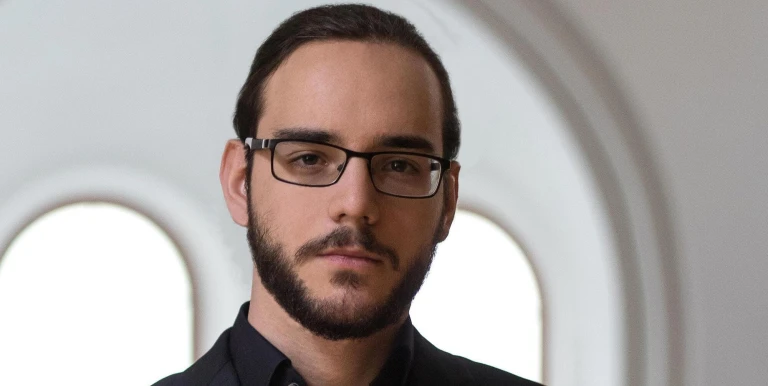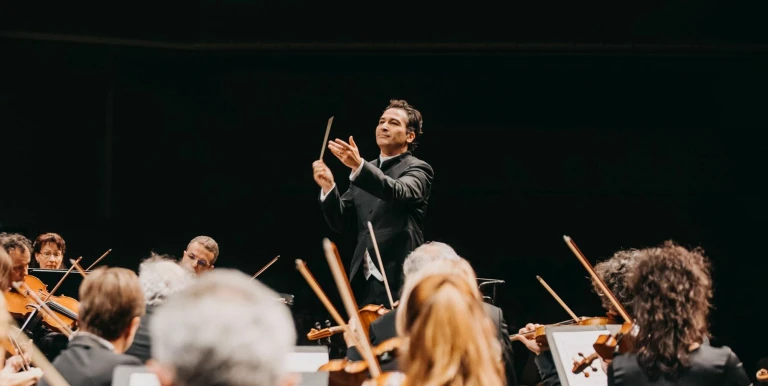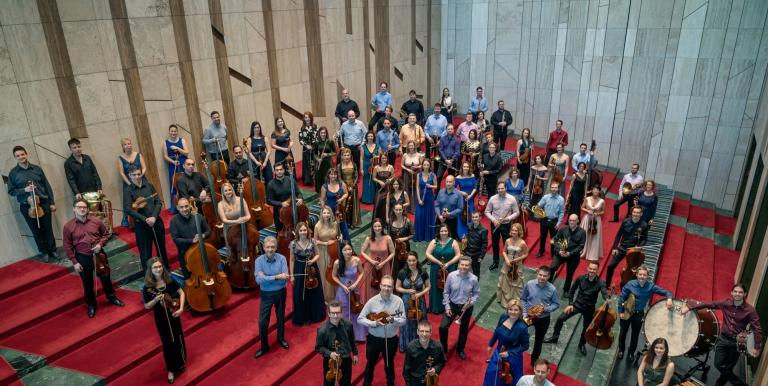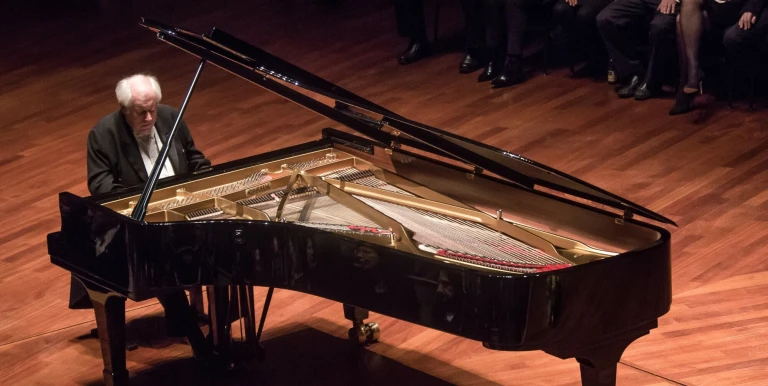one interval
Featuring:
J. S. Bach
Prelude and Fugue in E minor, BWV 548
C.P.E. Bach
Harpsichord Concerto in D minor, Wq 23
Fischer
Urania - suite from the Musicalischer Parnassus series
Litaize
Prélude et danse fuguée
Piroye
La Béatitude
Brahms
Symphony No. 4 in E minor, op. 98 - first movement (as transcribed by Paul Sterne)
Rossini
Petite messe solennelle - O salutaris hostia; Agnus Dei
Born in 1995, Artúr Schallinger-Foidl studied under Lilla Szathmáry at the Béla Bartók Conservatory and with László Fassang, János Pálúr, István Ruppert, Balázs Szabó and Miklós Spányi at the Academy of Music. His central areas of interest are early music and historical performance practices. He has taken part in numerous master classes, and has studied the viola da gamba in addition to the organ and harpsichord. He founded his own ensemble, Bacchus Consort, in 2014, but also regularly appears with other groups.
His graduation concert places heavy emphasis on early music, but his chief guiding principal in developing the programme was to show how the organ evokes the sound of an orchestra from the Baroque period all the way up to the 20th century. Through Johann Sebastian Bach's Prelude and Fugue in E minor, one of his greatest organ works, the audience will get to know the Central German organ school. The first movement of Carl Philipp Emanuel Bach's Harpsichord Concerto in D minor contrasts the sound of the organ against an actual orchestra, with the Bacchus Consort joining in to perform the piece. One of Bach's role models was Johann Caspar Fischer, and the concert will feature a harpsichord suite from his Musicalischer Parnassus series. A strong French influence can be detected in the German composer's works, and on the organ, the movements of his suite Urania give the impression of orchestral dances. Gaston Litaize's piece Prélude et danse fuguée refers back to the work by Bach that opened the concert and all but quotes the theme from its fugue.
Opening the second half is a work by Charles Piroye: La Béatitude evokes the sound of a court orchestra from the period of Louis XIV. This is no coincidence, as Piroye was a student of Lully's. The concert will conclude with Romantic works: an organ transcription of the opening movement of Brahms's Symphony No. 4 in E minor, followed by two arias from Rossini's Petite messe solennelle - O salutaris hosti and the monumental closing movement, Agnus Dei - in which the organ performs the role of the orchestra alongside the soloist.
Presented by: Academy of Music, Müpa Budapest
-
We wish to inform you that in the event that Müpa Budapest's underground garage and outdoor car park are operating at full capacity, it is advisable to plan for increased waiting times when you arrive. In order to avoid this, we recommend that you depart for our events in time, so that you you can find the ideal parking spot quickly and smoothly and arrive for our performance in comfort. The Müpa Budapest underground garage gates will be operated by an automatic number plate recognition system. Parking is free of charge for visitors with tickets to any of our paid performances on that given day. The detailed parking policy of Müpa Budapest is available here.










